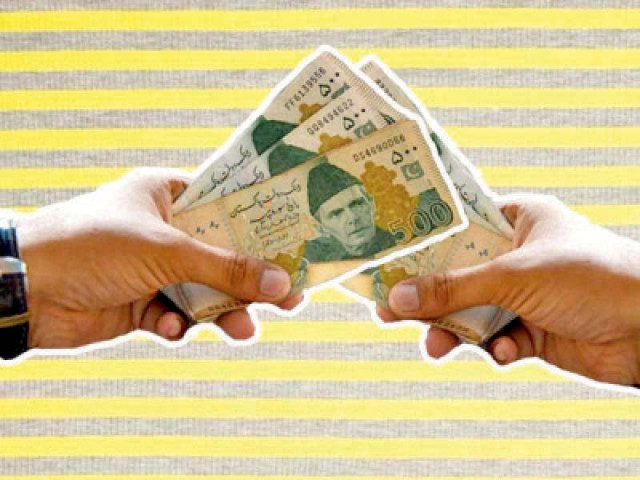Addressing challenges of income inequality, real estate
It is primarily entry back to IMF programme that is good for economy, investor confidence

People want foreseeability. Governments use budget to project their governance priorities, summarise current challenges and chart the way forward.
If you have only one year of tenure remaining, the budget merely reflects a must-do scenario as the absence of which can derail national security. In this case, remaining within the IMF programme is being ensured.
Dollar-denominated inflation is a global phenomenon that can at best be marginally tweaked and addressed through the long-term underlying economic shifts.
However, the citizens earn in local currency (rupee) and thus are more exposed to the impact of local currency depreciation. A double whammy reverberates through the economics of households and businesses.
Rupee-earners are rightly worried as the rupee has had an annual depreciation of 14% in the last five years. Notwithstanding the even higher dollar increase in the international markets of many commodities, importers can’t be choosers. Frankly, Pakistan’s woes are more domestically entrenched merely compounded by uncontrollable factors.
While businesses pass through the cost to consumers in a jiffy, the salaried class doesn’t get more than 14% increment every year.
Have companies increased salaries of their employees accordingly? Don’t think so. Thus, the focus is back on what Team Miftah Ismail can offer in a year.
It is no secret that all roads lead to the IMF. By tinkering with the previously agreed terms, failing to fix the loss-making state-owned companies’ liabilities, giving lavish tax benefits to the untouchable elite and not being able to add value to the exporting products, we are back to square one.
Our friendly countries are tying economic assistance with us showing discipline (IMF’s nod). It’s akin to giving aid to the needy for children’s education but they end up buying TV in their house.
To ensure IMF’s continuity, the government is ambitiously reducing the fiscal deficit to less than 5% and hoping to reduce it to below 3% in three years (years not in power, so clearly not happening).
In this very optimistic assumption, the petroleum development levy (PDL) is expected to be nearly Rs30 per litre but that too is impossible given the current oil prices, refinery margins and people’s resentment. By restricting the tax collection target to Rs7 trillion, the government plans to not aggressively increase the indirect taxes and seems to have negotiated well with the IMF.
Also, there is a decrease in income tax on the salaried class earning up to Rs1 million per month, benefiting more the ones with lesser incomes. Miftah continues to receive the applause, which echoed the one received for his budget of 2018.
Appreciably, the focus has shifted to taxing the rich to a larger extent, which is reflected in the following:
One, income tax rates on people earning Rs1 million per month or more has increased.
Two, additional tax of 2% is levied on companies earning more than Rs300 million per year.
Three, banks, benefiting from the higher tax rate, are being taxed at 47%, and penalised for not lending. Four, the capital value tax is being imposed on people having assets worth Rs100 million outside of Pakistan.
Five, the capital gains tax (CGT) on properties outside of Pakistan to be levied at the normal rate instead of the cheaper CGT.
Six, tax credits on investments in mutual and pension funds have been done away with (mostly used by the rich).
Similarly, sincere efforts are being made to reduce speculation in and fairly tax the real estate sector and the rich, which is manifested in the following:
One, concept of deemed rental income is being introduced for people having multiple properties with higher fair value (Rs25 million).
Two, CGT on plots is being stretched to six years to discourage excessive churning.
Three, there is 5% advance tax on non-filers for the purchase of immovable properties vs 2% for filers.
Four, interest income on government securities is being taxed at the normal rate.
Five, nominal Rs3-10k monthly tax is being levied on retailers depending on their electricity consumption. Six, there is higher tax on cellphones worth $500 or above.
Seven, there is 100% increase in advance tax on vehicle purchase.
Eight, 200% and 250% increase is being made in tax on non-filers for the purchase of vehicle and immovable properties.
Banks are being thoroughly squeezed for enjoying at the expense of government’s economic mess and also taxed higher for not lending.
However, cherries are being offered to grow our nascent solar industry in the long term.
Naturally, the ruling parties have extended several benefits to the media/ entertainment industry a year before election to garner tacit support.
Between the lines, parking money in real estate and government securities is discouraged enough to propel investors to look for growth opportunities.
To conclude, the budget is primarily an entry back to the IMF programme, which is good for the economy, people at large and investor confidence.
Aiming for 5% GDP growth and 4.9% fiscal deficit is ambitious, yet aspiring. With the Consumer Price Index (CPI) expected to be 11sh%, do not expect any major cut in the interest rate.
Whether the current account deficit falls to 2.2% or not is a function of the global commodity cycle.
The budget will help us cross the bridge towards economic stability and move the needle in reducing income inequality. Worries of economic default should go back to the cave. It’s a sigh of relief for many.
Belt tightening must continue – a needed-to-positive budget by Miftah.
The writer is an investment specialist with keen interest in political economy
Published in The Express Tribune, June 13th, 2022.
Like Business on Facebook, follow @TribuneBiz on Twitter to stay informed and join in the conversation.



















COMMENTS
Comments are moderated and generally will be posted if they are on-topic and not abusive.
For more information, please see our Comments FAQ